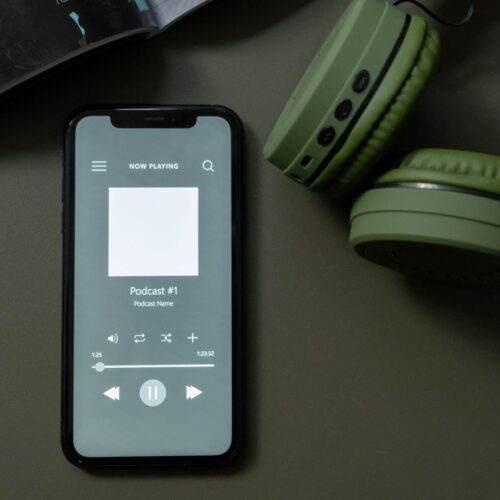
Getting your works performed Part 2: 11 Golden Rules of submitting your work to performers
In Part 1, I mentioned some of the ways a composer can get their music heard. In this article, I want to highlight the 11 Golden Rules of submitting your work to performers, either through a Call for Scores or as an unsolicited approach.

My ensemble, rarescale, has an open Call for Scores, and I receive, on average, a new piece every week, with many more pieces received through specific workshops and events. This is clearly far more material than we are able to perform, but I learn every piece we receive and add it to the database for consideration for future performance opportunities as they arise.
Through this aspect of my work, I have devised the 11 Golden Rules, which composers may find helpful!
- Decide on the appropriate level of performer. Don’t send your first orchestral piece to the LSO, and similarly, don’t send a fiendishly difficult virtuoso solo piano piece to the local amateur accompanist, unless you know that they are good enough to tackle it! Send educational pieces to reputable teachers (rather than their students), who may well be happy to receive new material to try out.
- Do your research. Once you have decided the appropriate level of player to approach, find out what sort of music they play. If possible, go to hear them perform, or listen to recordings. Make sure your music is in a style that fits with their work, and check carefully for any submission guidelines (such as instrumentation/duration etc) and stick to them.
- Presentation is important. Prepare your score for submission. Many people are happy to receive a PDF file by email, but be prepared to produce bound scores on request. Make sure the score is typeset and clearly legible with well thought-out page turns. Include a recording if you have one.
- Don’t forget the glossary. All unusual notations must be clearly defined in a glossary at the start of the score.
- Include programme notes. Give information of any performances that have happened or that are planned for the near future, and if the piece hasn’t been performed yet, offer the opportunity to give the premiere.
- Send a covering email. This is important, as you have more chance of your music being played if the performers get on well with you. Be friendly, approachable and professional. Don’t be pushy!
- Be patient. Good performers are busy people. They will want to do justice to your piece, so will need some time to listen to recordings and to learn the piece, or at the very least to spend some time with it before coming to a decision. Unless you are sending something in to meet a specific deadline, it may be some time before a suitable performance opportunity arises. With rarescale, we often programme concerts up to a year in advance, and there are usually a number of pieces to consider as options for each concert. It is not unusual for us to programme a piece several years after first receiving it.
- Build a relationship. While waiting for a suitable opportunity to arise, gently remind people you exist. If you want an ensemble to play your music, go to their concerts, get to know how they sound and introduce yourself to the performers. Send news updates whenever you have a significant event to report, but don’t be pushy and don’t inundate their inbox with spam!
- If you offered someone the premiere, don’t then give it to someone else. Concerts can take time to organise (and to find funding for). If someone else can offer you a performance sooner, get in touch with the first person and explain the situation, but be prepared to honour your original agreement.
- Don’t be arrogant. Don’t demand the return of your piece if it isn’t performed after a month, and don’t give the player a hard time! There are lots of composers out there, and quite often, you need performers more than they need you (sadly, there’s nothing to make people play music by living composers…). Also remember that performers know other performers, and that can work in your favour as well as against you!
- Don’t give up. There are lots of performers out there, and many potential opportunities. One thing is guaranteed; you won’t get heard if you don’t promote yourself.
And finally, here are some of the main reasons why a piece might not be programmed:
- Funding constraints (i.e. too much rehearsal time or too many players/extra instruments needed)
- Doesn’t follow the guidelines
- Doesn’t fit with the rest of the programme (programming is an art in itself and the music needs to have a sense of flow from one piece to the next)
- Technical problems within the composition (i.e. unconvincing structure/practical problems with instrumental writing etc)
- Too long (it’s much easier to find a slot for a 5 minute piece than a 45 minute one)
- Taste/stylistic reasons.
Good luck – and please let us know about any success stories!






Liz Herbert, the Librarian from CoMA has been in touch as they have a current Call for Scores. CoMA (Contemporary Music for All) is a national organisation dedicated to promoting participation in contemporary music. Composers are invited to write a flexibly scored piece based on the theme The Natural World for a mixed ensemble of amateur players. Selected pieces will be workshopped between July – December 2012 by CoMA ensembles in Brighton, Leeds, London, Nottingham or Bristol. The deadline for submissions is 28th May 2012. For more information, contact Liz Herbert (library@coma.org)
Hi
Im a violinist/Mandolin Player(Ex Folkie/WOMAD Teacher guy) and have a piece ive composed that’s rather klezmerish/Arabic/Balkan- but I never written it up- or even attempted to orchestrate it.
Should I do that or would that be too off beat for anybody to bother with ?
Rodney
Hello Carla,
Thanks a lot for your blogs on getting your works performed. This was one of the things we spoke about during the composition workshop and it’s great to see that it is being followed up by you and the OCA!
Best wishes,
Petra
Hi Rodney
In response to your question about your piece in the klezmer genre, I guess much depends on whether it is to be played by musicians experienced in that tradition, or by musicians with a classical background. As you probably know, most folk and jazz music is played either from memory or from very basic notation which is then used as the basis for improvisation within the conventions of that genre. However, if people from outside the tradition are to play it, they will need much more guidance and this is where writing it all out will help; it will also ensure performances are more consistent with the way you hear the music yourself.
Do have a look at Carla’s second article with some more clues about how to get your music performed.
Good luck!